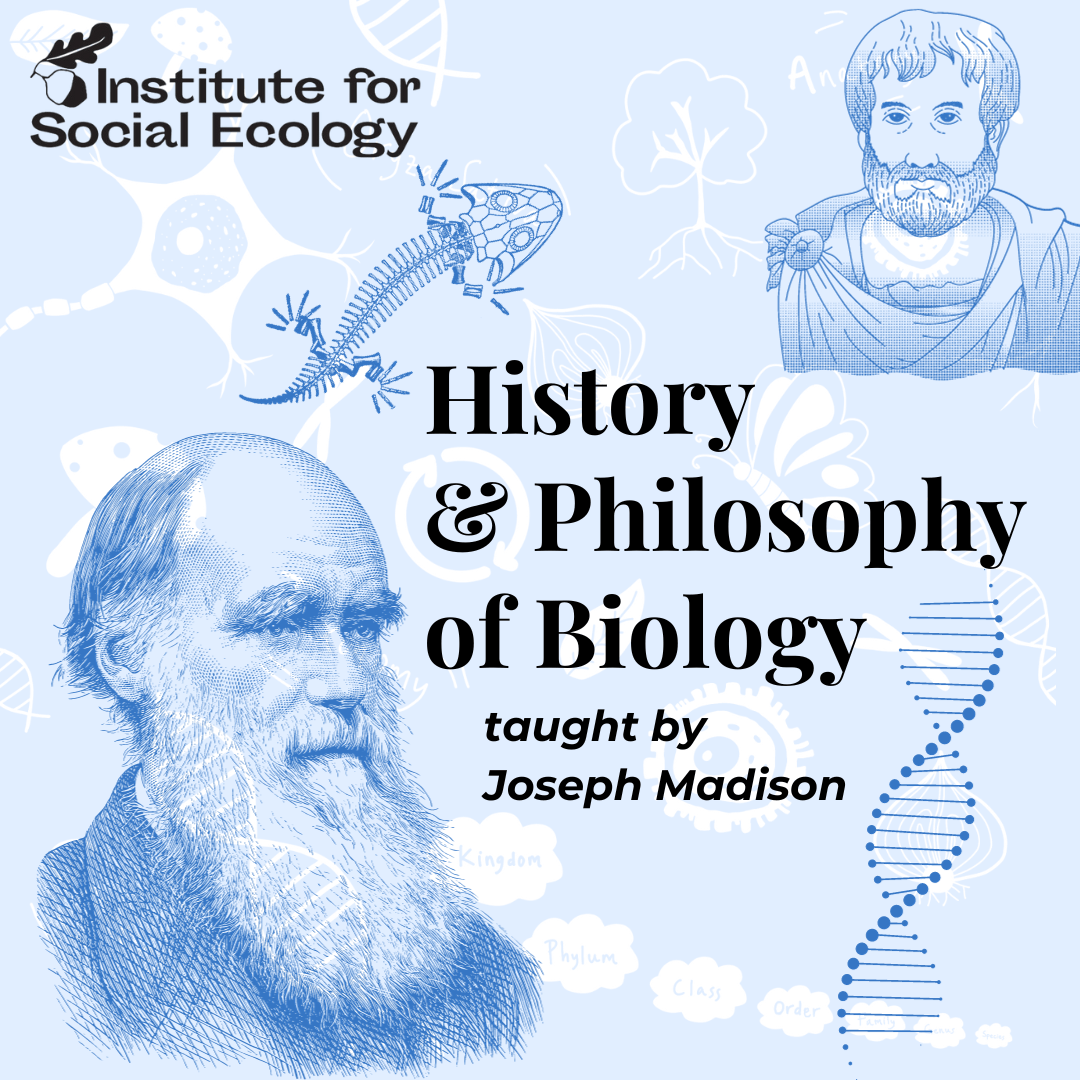As a self-directed flex course, this can be registered for and taken at any time, at the student’s convenience. Registrants will have access to the full syllabus and reading materials as well as lecture recordings, but without any live classes or discussions.
This course will provide an overview of the historical development of various strands of philosophical thought in the biological sciences, with an emphasis on ecology and evolution. This overview will range from ancient proto-naturalistic thinking to contemporary philosophy of biology, to include ongoing debates with broad societal implications. The course will draw on student discussion and critical thinking as a means for analysis of the emergence, intermixing, and fading of these philosophies. By the end of the course students will be able to understand and analyze the historical development of the dominant philosophical paradigms in the biological sciences. Students will also have practice in contextualizing and critiquing the historical and philosophical bases of related social issues such as neo-eugenics and the biodiversity crisis.
Each segment will generally focus on advancing periods of history in the biological sciences, while also taking into account material from previous historical periods/discussions. This approach will aid in understanding the development and motivation of the underlying philosophical paradigms, to include the present day. Our weekly sessions will include interviews and presentations by biologists and philosophers as well as supplemental readings and other audio-visual resources. This course aims to use an interrelated analysis of both history and philosophy so that students can critically engage trends in contemporary biological thought, research, and related sociopolitical issues. We will learn from biologists, philosophers, historians, and activists in their historiograhies, analysis, and critiques of philosophies of biology. Towards the end of the course, we will also explore the potential role of social ecology in informing critique and analysis of philosophical bases in contemporary biological issues.


